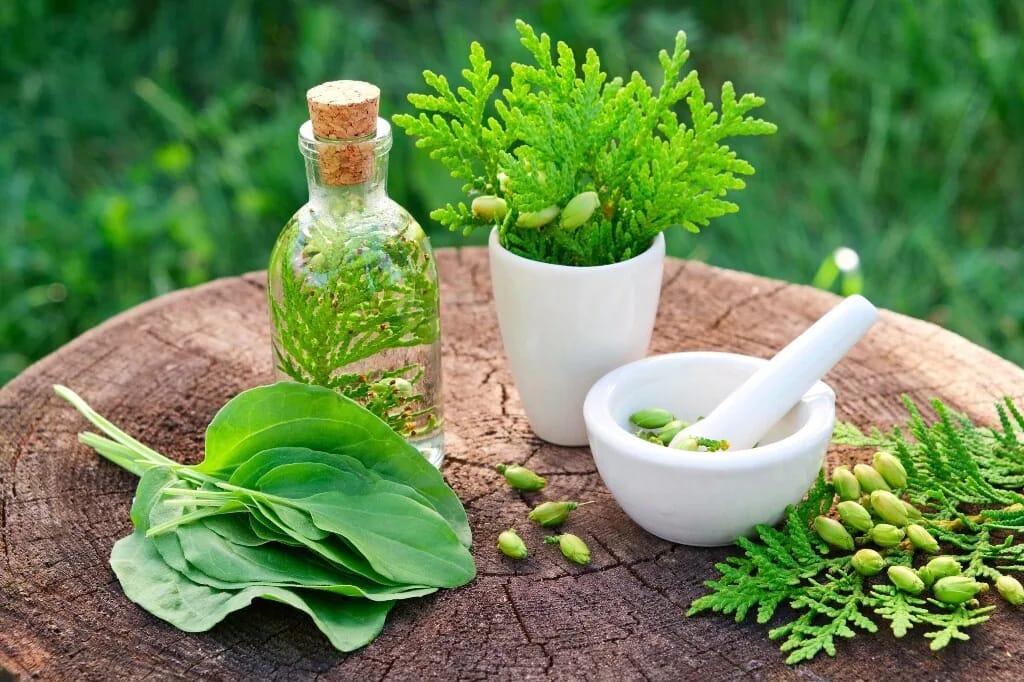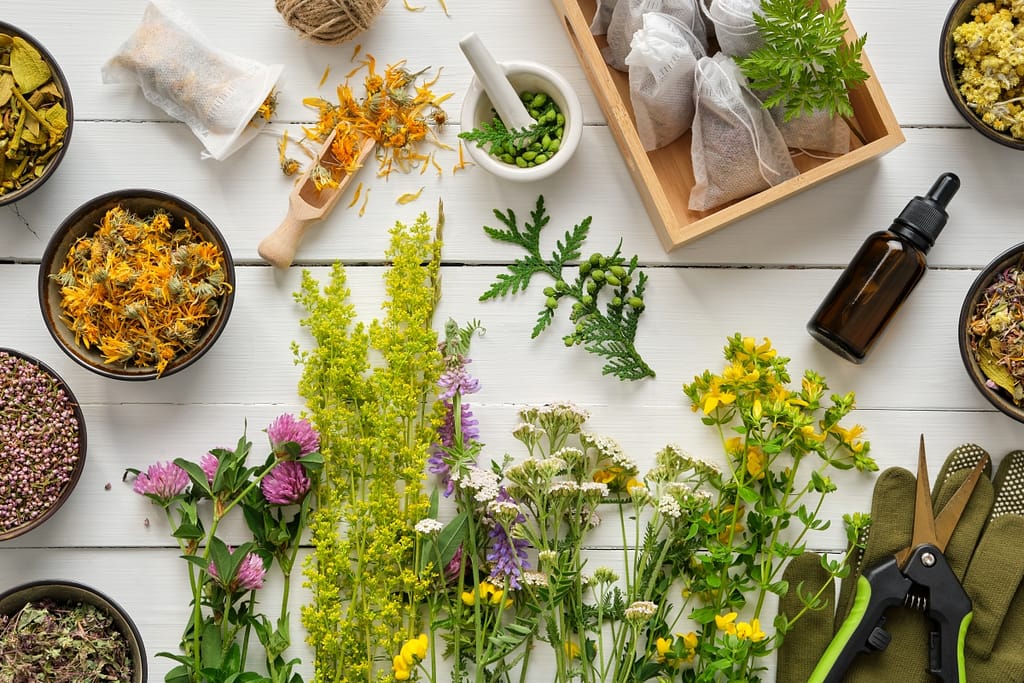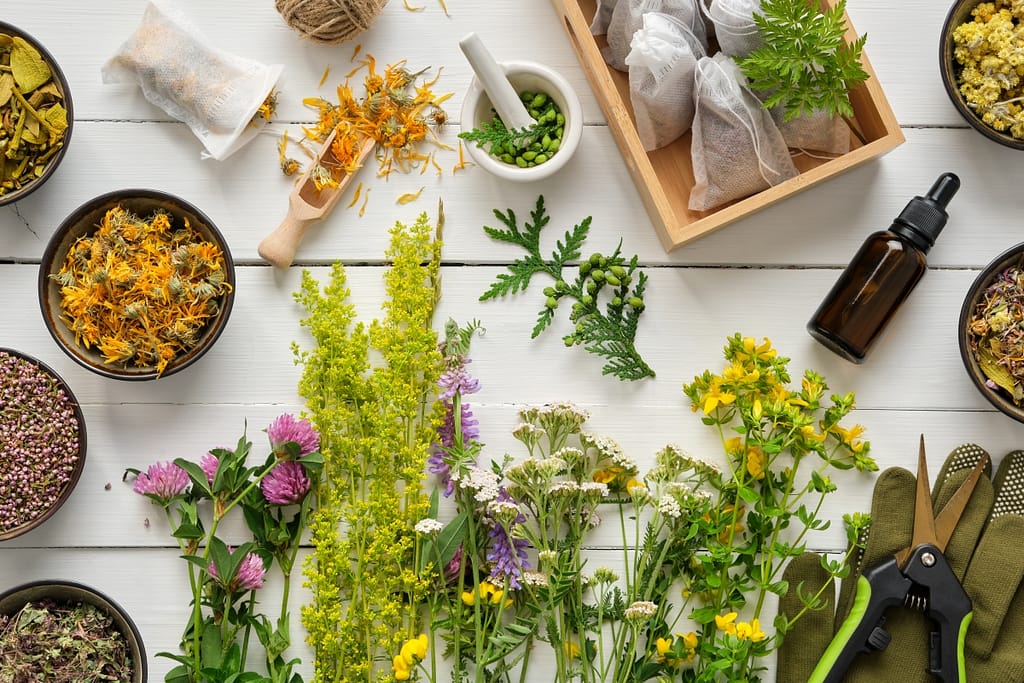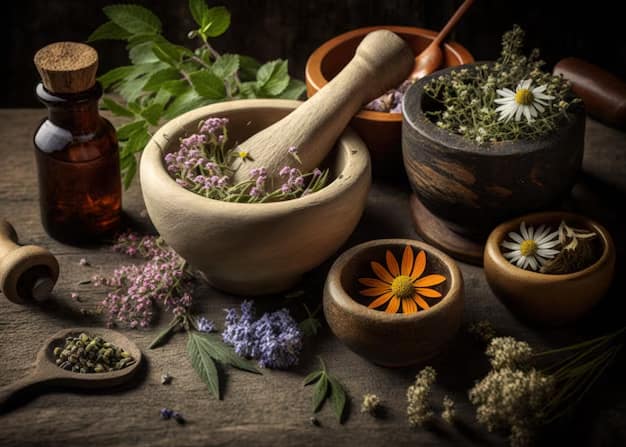
The utilization of seeds, berries, roots, leaves, bark, or flowers of plants for medicinal purposes is called herbal medicine, also known as botanical medicine or phytomedicine. The use of herbs to promote health and cure diseases is a practice that dates back to the beginning of humankind. It has been with us through ages across all cultures and continents.
Understanding Herbal Medicine: An In-Depth Overview
Herbal medicine can be described as a system of prevention and treatment using plant remedies which by reason of their history are acknowledged to be effective. Traditional herbal medicine has always been based on traditional knowledge as well as modern phytotherapy research.
Herbal medicine comprises internal, external, and oral administration of vegetable substances. Seeking to cure people as well as enhance their state of health, herbal medicine believes in the unity of body and mind and in curing the illness not only in terms of its indicators or symptoms.
The Historical Roots of Herbal Medicine
Herbal medicine did not just come out of the blue and has its background with the origin of botanical medicine in ancient civilizations like China, India, and Egypt. Some Ancient forms like Ayurvedic form and Traditional Chinese medicine have made use of herbs for millennia.
Such earlier ways contributed to the overall evolution of herbalism as a broader practice with active knowledge of the exploitation of plants. Such is not the case now as herbal medicine does not only involve ancient practices but the influence of science in herbal medicine has progressed.
Fundamental Concepts and Techniques of Herbal Medicine
The principle of herbal medicine is the use of extracts from plants for body restoration. Techniques include infusions, decoctions, tinctures, and salves, making use of various plant parts such as leaves, stems, roots, and flowers.
Herbalists tend to the overall action of the plant’s constituents and hence often use combinations of herbs. Such a method is often referred to as a constitutional approach wherein the health of each individual is optimized by taking into consideration the idiosyncrasies of the particular person.

The Potential of Herbal Medicine in Treatment
As any practitioner of herbal medicine can tell you, there is a myriad of conditions that herbal medicine addresses, some of these include enhancing the immune system function, alleviating inflammation, and improving psychological health. There are also herbs like antiperspirants which have been researched to have efficacy.
These herbal medications are safer than using chemical components. Herbal medication serves as a preventive measure, treatment of infection, and disease control and also as a maintenance therapy for good health.
Who Can Benefit from Herbal Medicine?
Herbal medicine has its application to a variety of people, including those who are seeking relief from chronic ailments or others desiring to avert them. It is especially effective for stress management, boosting immunity, and treating stomach problems.
Oftentimes, women during pregnancy, children, and the aged can manage themselves with the help of herbal products, although under supervision. Since it deals with both physical health and psychological issues, herbal medicine can be used to solve different health problems.
Scientific Insights: What’s the Research Evidence in Support of Herbal Medicine?
The medical history list is positively contributed by competitive herbal products supported measuring many researches proving the usefulness of such treatments. Current studies suggest that some herbal substances work: Echinacea stimulates immune function and turmeric is an anti-inflammatory herb.
Clinical studies and reviews of clinical evidence have also been able to support the effectiveness of herbs in the management of some disorders such as anxiety, chronic pain, and hypertension. However, there is limited research on some herbs, but the increasing evidence supports the practice of herbalism in the complementary practice.
Disproving Some Common Stereotypes and Misunderstandings About Herbalism
Herbal medicine advocates often state an uninformed idea that there are no side effects when taking herbs. Actually, herbs are safer but misuse of them as well as incorrect combinations with other drugs can indeed trigger adverse effects. Herbal medicine has no scientific basis; this is another widespread belief.
But in fact, a lot of evidence supports the use of herbs. Such thinking results in believing that it is a magic prescription even for impossible health concerns, which is false. Rather this is an antidepressant that needs to be taken in conjunction with other factors. These aspects help in appreciating herbal medicine.
Choosing a Professional Practitioner: Seeking a Trained Expert in Herbalism
This entails, among other things, confirming herbal qualification certificates claimed by herbal medicine practitioners or those obtained from professional herbal medicine schools. Search for Vinay Shankar and others, including folk practitioners who practice herbalism, nurture her, Oriental medicine, and so forth.
It is important to find someone who has experience in helping with the particular health issues which concern you. A competent herbalist will do extensive history-taking and thorough examinations to come up with an individualized herbal formulation while paying attention to safety issues like the health status and drugs of the person.

Integrating Herbal Medicine with Conventional and Complementary Therapies
Herbal medicine may be used alongside conventional treatments if it is applied prudently. For instance, there exists a blend of conventional and complementary therapies such as acupuncture, physical, or even therapy that will result in holistic healing. This, therefore, can treat not only the symptoms but also the root causes of any form of illness.
It is crucial to follow healthcare professionals who can ascertain that herbs do not interfere with prescribed medications. In most uses, herbal medicine boosts their immune functions, reduces inflammation, and provides mental well-being as supplements for other therapies in providing holistic health.
Maximizing the Healing Potential of Herbal Medicine: Expert Tips
- High-Quality Herbs: Source herbs from reputable suppliers.
- Unique Properties: Get familiar with the specific benefits each herb brings.
- Right dosages: Learn about the right dosages of the herbs for safety.
- Preparation Method: Prepare the herbs the right way by either teas, tinctures, or capsules.
- Healthy Diet: Maintain a balanced diet to ensure adequate health.
- Hydration: Ensure ample water supply for the body’s natural healing processes to occur as required.
- Managing Stress: Engage your mind in a stress management activity like meditation.
- Seek Professionals: One should consult an experienced herbalist or naturopath in order to get proper consultation to administer herbs in a complementary way.
Risks: Potential Side Effects and Precautions of Herbal Medicine
Herbal medicine is generally non-toxic. However, it does comprise a profile of risks or conditions that may provoke an allergic reaction, contribute to drug interactions, or exacerbate an underlying medical condition. In addition, one needs to be aware of side effects which may include possibly gastrointestinal upset, dizziness, or skin irritation.
Then, always follow the prescription dosage and consult your healthcare provider for any herbal regimen, especially if you are pregnant, breastfeeding, or have chronic conditions. That way, you can avoid unwanted complications and use herbs safely.
How to Practice Herbal Medicine at Home?
First and foremost, a nurturing environment at home should be prepared. One can begin with a small herbal garden or pots like lavender, peppermint, or chamomile, all of which are healing and relaxing.
Set up a calming space to prepare herbal remedies, meditate, and chronicle your health journey. Structure the small herbal apothecary in the most accessible manner with storage for your dried herbs, tinctures, and oils. Don’t forget to take time for self-care and mindfulness, as your home becomes the haven for natural healing.
Personal Growth and Herbal Medicine: How It Can Transform Your Life
Herbal medicine is about not just physical health but also personal growth. Mindful practices, perhaps deepening your connection to nature, will develop greater self-awareness and patience and help you adopt holistic living. Integration of herbs into your daily routine encourages healthier habits and builds a sense of responsibility for well-being.
For this reason, people educate themselves with knowledge about various types of plants and their healing properties, thus empower themselves to nourish their body and mind for a transformative journey toward a more balanced and harmonious life.
The Challenges and Controversies Surrounding Herbal Medicine
Some of the critics found fault in herbal medicine for lacking scientific validation. Critics often point out how the quality in herbs varies and the lack of regulations. Some even question if it is really effective compared to conventional treatments. However, many people feel that traditional knowledge plus growing evidence supports the use of herbal remedies.
A really high degree of rigor in scientific studies and better regulatory practices need to be followed to achieve consistency. Acceptance of both the traditional and modern healing methods would allow one to move past these controversies and come up with a more informed understanding of herbal medicine.

Empowering Yourself: How to Become a Practitioner of Herbal Medicine
Practicing herbal medicine requires dedication and continuing study. Start by studying the basics of botany, herbal pharmacology, and safe herb usage. If available, enroll in accredited courses in herbalism and acquire formal education and certification. Tincture, tea, and ointment your way to lots of practical applications.
Look for experienced herbalists with whom you can seek guidance and mentorship. Gradually, you’ll build knowledge and confidence that comes from being able to offer advice or treatments to others, and from this, you’ll be able to contribute towards holistic healthcare.
Creating a Community: Connecting with Others Who Practice Herbal Medicine
Building a network with like-minded people practicing herbal medicine fosters learning and support. Join local or online herbal groups to share knowledge, experiences, and expertise from others.
Herb market or workshop; retreat: Join to learn more, to mingle with others, and to find inspiration. Networks of this type will expose you to collaboration, support, and updates on new field research. Such a community will inspire your practice and could be the means to making lasting, long-term friendships.
Conclusion:
An ancient but effective means of restoring health which has been supported by many years’ worth of traditions all over the world and backed up by scientific proof day by day growing stronger still; therefore, we can say that plant medications are unique among other forms because they may be used either singly or combined depending on need so far discovered through research even though some caution should always be taken into account before use especially when dealing with holistic approach towards treatment where prevention is better than cure mentality works best for most people in general.

